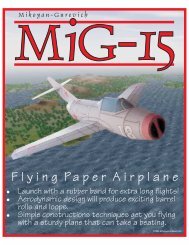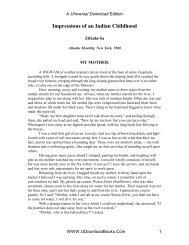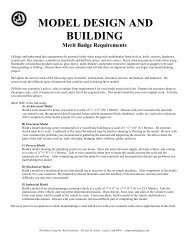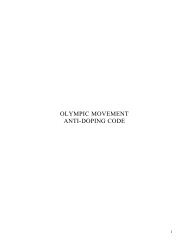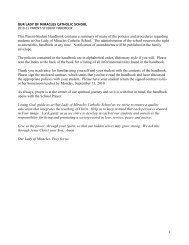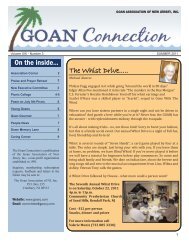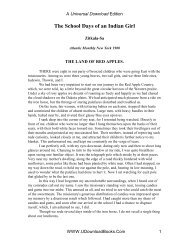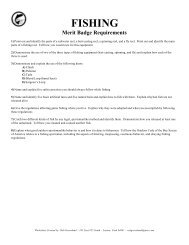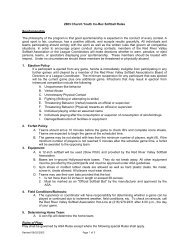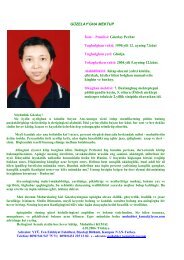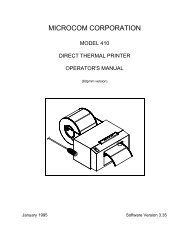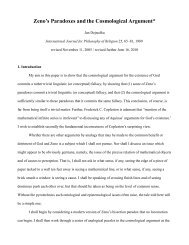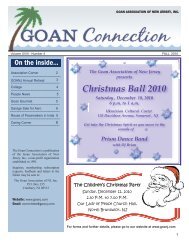Dummett's Backward Road to Frege and to Intuitionism - Tripod
Dummett's Backward Road to Frege and to Intuitionism - Tripod
Dummett's Backward Road to Frege and to Intuitionism - Tripod
Create successful ePaper yourself
Turn your PDF publications into a flip-book with our unique Google optimized e-Paper software.
condition for each of its sentences <strong>to</strong> be true. It is only in doing so that one who knows<br />
that language knows the Bedeutungen of its terms; hence <strong>to</strong> stipulate in the<br />
metalanguage that certain terms are <strong>to</strong> denote certain objects is at best <strong>to</strong> take as<br />
unders<strong>to</strong>od what the theory should be explaining. The only way in which a speaker of<br />
the object-language can specify the Bedeutung of one of its terms is by using some co-<br />
referential term, which he recognises as such by his grasp of statements of identity. This<br />
is but part of his knowledge of what determines the truth or falsity of sentences<br />
containing the term; it is the content of that knowledge which the theory of Bedeutung<br />
must exhibit. (1995: 16–17, my emphasis)<br />
In this puzzling passage, it looks for all the world as if Dummett is saying that it is by specifying the<br />
truth-conditions of a “sentence of a given form,” <strong>and</strong> “only [by] doing so,” that we can explain the<br />
references of its subsentential terms, <strong>and</strong> thereby also the “intended Sinne” expressed by those terms.<br />
The sole exception noted is that we must presuppose knowledge of what the truth-values are, though<br />
not of which sentences are true <strong>and</strong> which are false. These objects are <strong>Frege</strong>’s sentential references. But<br />
they are also subsentential references. We can use “the True” <strong>to</strong> refer <strong>to</strong> the True. It might seem from<br />
the phrase “any other object [than a truth-value]” that Dummett is allowing us <strong>to</strong> fix the Bedeutung of<br />
“the True” as the True. This seems <strong>to</strong> contradict the aim of the program. But the phrase’s grammatical<br />
reference is unclear <strong>to</strong> me, <strong>and</strong> I shall charitably assume Dummett does not mean that. In any case, the<br />
passage states the semantic program Dummett interprets <strong>Frege</strong> as having. I shall call it “Dummett’s<br />
program.”<br />
Dummett is saying that for <strong>Frege</strong>, there is a backward road from reference <strong>to</strong> sense. This departs<br />
from Dummett’s earlier books in which he held Russell is right that there is no backward road for <strong>Frege</strong><br />
(1981a: 87, 95; 1981: 267), <strong>and</strong> amended <strong>Frege</strong>’s theory because the no backward road thesis is a<br />
3



